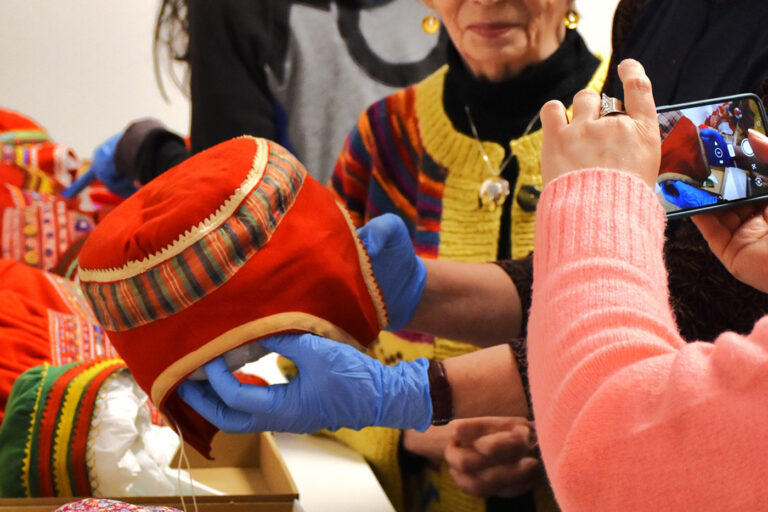Aiming for safe cholesterol medication
Cholesterol medicines have a bad reputation as causes of muscular and joint problems. In reality only a small proportion of statin users suffer side effects, and in their cases the cause may be a rare genotype. Doctoral researcher Wilma Kiander has been examining the impact of hereditary factors on the success of statin treatments.


Text: Essi Kähkönen
Photography: Petri Summanen
Statins are known to tens of thousands Finnish patients as cholesterol-lowering medicines. They especially reduce the amount of so-called bad cholesterol in the blood, helping many patients avoid coronary heart disease, heart failure and strokes.
Many are still cautious about taking cholesterol medication, because statins are reputed to have tricky side effects.
“Statins have been burdened with a somewhat undeserved image related to adverse effects, of which muscle and joint pain are perhaps the best known. Many patients who detect these effects stop taking statins without consulting their doctor,” says doctoral researcher, pharmacist Wilma Kiander from the Faculty of Pharmacy at the University of Helsinki.
Kiander would like to remind people that statins are usually safe. A small proportion of users experience ill effects, however.
“Statins have been burdened with a somewhat undeserved image related to adverse effects, although they are usually safe.”
“Therefore it is important to figure out how the side effects of statins could be reduced,” she explains.
Some have a hereditary risk of adverse reactions
Kiander is researching the passage of statins through the body using specific carrier proteins, as well as how hereditary factors may influence this by impeding the functioning of these proteins. Carrier proteins ensure that the statins go from the circulation into the liver, through which they pass out of the body.
A small proportion of Finns have inherited a poorly functioning or even non-functioning version of a carrier protein. It is these protein variants that place this group of people at a higher risk of suffering adverse effects from statins.
According to Kiander, in persons with this kind of hereditary predisposition, the content of cholesterol medicines such as rosuvastatin and simvastatin in the blood may be as much as 60–200 per cent higher than that of other statin users.
“In this case the detrimental effects of the medication are also more likely to arise. The higher the statin content, the higher the risk of adverse side effects.”
Kiander says it is important to figure out the role of rare carrier protein variants in the success of statin treatments.
“It would allow doctors to be more cautious in prescribing statins.”
Many stories from the pharmacy counter
Kiander is a qualified pharmacist and in her work she has found that many patients who have been prescribed statins will hesitate before taking the medication. Similarly, many who have detected muscular or joint symptoms consider stopping the medication.
“Stopping the medication may carry higher risks than those of the mild muscle aches caused by the statin.”
“I have come across pharmacy customers who have tried several cholesterol medications without finding a suitable one. Often their level of commitment to taking the medication will be low, so they may stop taking it.”
However, Kiander says that stopping the medication may carry higher risks than those of the mild muscle aches caused by the statin.
“Remember that for many people statins are life-saving medicines.”
Personalised medical care is on the way
Once Wilma Kiander’s thesis is approved, it will join an important series of studies that aim to make medical care safer and more suitable for everyone.
Kiander hopes that in the future medications will be possible to tailor personally for each patient.
“Personalised medical care is already the norm in certain branches of medicine, but on a broader scale it is in its early stages. If we found a reliable and easy way to determine a person’s genotype and to check whether it includes factors that are adverse in terms of cholesterol medication, statins could also be prescribed more accurately,” says Kiander.
“Hopefully that would improve patients’ confidence in using these important drugs.”
Pharmacist Wilma Kiander received a two-year, EUR 52,000 grant from the Elli Turunen Fund in 2020 for her thesis research on the impact of heredity on the safety of cholesterol medication.



